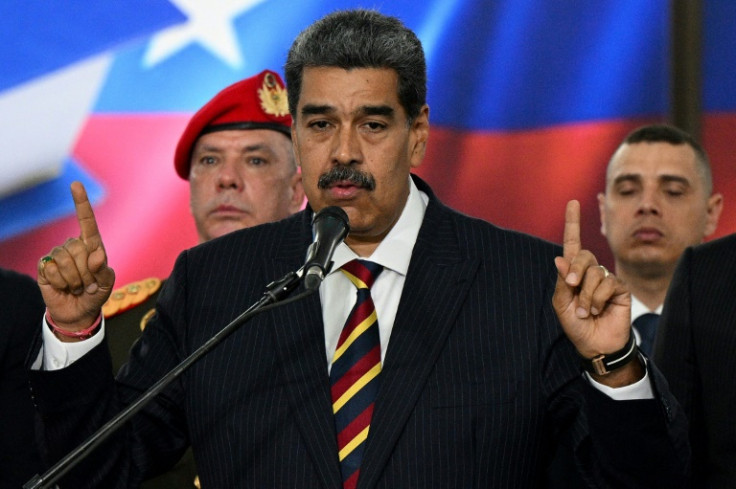
Venezuelan lawmakers approved a controversial bill declaring economic sanctions against the Maduro regime crimes against humanity. The law permits the prosecution of anyone who supports sanctions, with convictions carrying sentences of at least 25 years in prison.
The National Assembly, dominated by President Nicolás Maduro's allies, passed the law largely targeting opposition leaders who have supported U.S.-imposed sanctions as a tool to pressure the government into negotiations. The bill bars supporters of sanctions from holding office, allows prosecution in absentia, and authorizes the confiscation of their property.
"The unilateral coercive measures and other restrictive or punitive measures adopted against the Bolivarian Republic of Venezuela constitute a crime against humanity," the bill reads, framing sanctions as part of a widespread attack on the civilian population, according to the AP.
The move comes amid heightened tensions between Venezuela and the U.S., which imposed sanctions Wednesday on 21 individuals accused of undermining the country's July presidential election. The U.S. House also passed a bill last week prohibiting federal contracts with companies doing business with Maduro's government.
The contested July 28 election has fueled Venezuela's ongoing political crisis. While the National Electoral Council, loyal to Maduro, declared him the winner without presenting supporting evidence, opposition figures, led by former diplomat Edmundo González, alleged fraud. The opposition coalition, citing data from 80% of voting machines, claimed González secured twice as many votes as Maduro.
Nationwide protests erupted after the results, with over 2,200 arrests reported, including opposition leaders, election workers, and protesters. The Maduro government intensified its crackdown, with the Attorney General's Office last week announcing new charges against opposition leader Maria Corina Machado.
Machado, accused of treason and conspiracy over her support for U.S. sanctions, dismissed the accusations in a video Thursday. "Let them accuse us of treason the day we stop fighting. Resignation would be the true betrayal," she said, reaffirming her commitment to challenging Maduro's rule.
González, now in exile in Spain, faces arrest warrants for publishing election data. Machado, who won the opposition's presidential primary last year, remains in hiding after being barred from the election by Maduro's government. Her substitute candidate was also disqualified, leading the opposition to back González.
The new bill underscores Maduro's efforts to consolidate power following the disputed election. Critics argue it is a bid to stifle dissent and target those seeking international pressure to restore democracy in Venezuela.
As Donald Trump continues to fill out cabinet positions for his upcoming administration, one of the lingering questions surrounding his upcoming relations with Latin America is how exactly he will deal with Venezuela.
A clear sign came from the nomination of Marco Rubio to be the next Secretary of State. Rubio has been an outspoken critic of the Maduro regime and, in September, cosponsored a bill with fellow Florida Senator Rick Scott, aimed at increasing the U.S. government's reward for information leading to the arrest of Maduro from the current $15 million to $100 million.
"The U.S. must do more to arrest narco-dictator Nicolás Maduro," said Rubio in a post on Social Media at the time, adding that "it's past time he is held accountable for his crimes."
© 2025 Latin Times. All rights reserved. Do not reproduce without permission.








